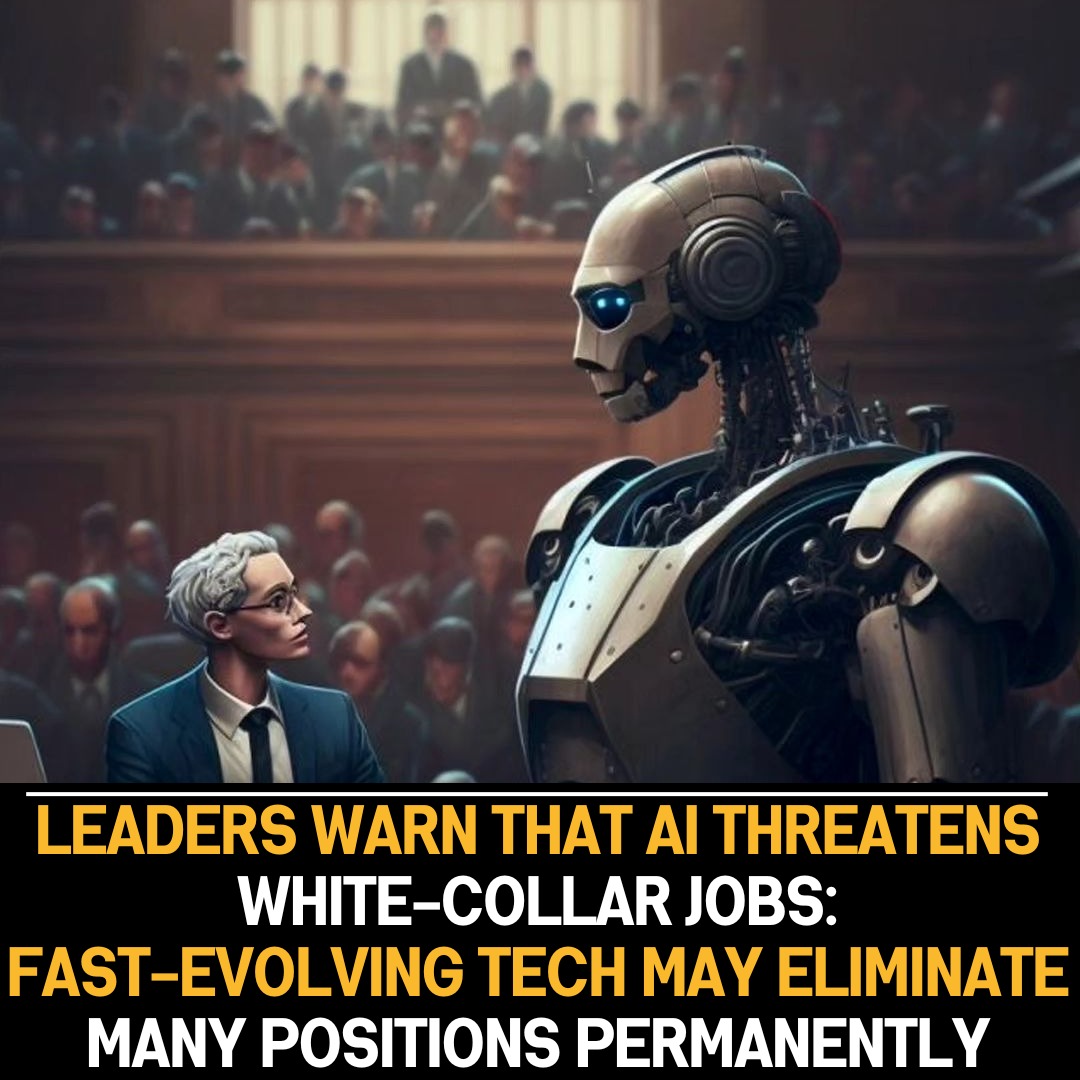In the ever-evolving landscape of technology, a growing concern is taking center stage: the threat posed by artificial intelligence (AI) to white-collar jobs. Leaders in various industries are cautioning about the potential consequences as rapidly advancing technology suggests the permanent elimination of many of these positions, sparking worries about job displacement and the need for transformative measures.
Artificial intelligence, with its ability to automate tasks that traditionally required human intelligence, is increasingly being integrated into various sectors, from finance to customer service and beyond. While AI offers unprecedented efficiency and innovation, the flip side is the potential displacement of jobs that were once considered secure in the white-collar domain.
Leaders across industries are sounding the alarm, emphasizing the need for proactive measures to address the imminent challenges posed by AI. The concern is not just about job displacement but also about the transformation of the employment landscape. Jobs that were once thought to be immune to automation are now under scrutiny as AI systems become more sophisticated and capable.
The impact of AI on white-collar jobs extends beyond specific industries, with the potential for widespread changes in the nature of work. As routine tasks become automated, there is a shift in the skill sets required for the workforce. This transformation necessitates a reevaluation of educational and training programs to ensure that the workforce is equipped with the skills needed for the jobs of the future.
Job displacement concerns are not unfounded, as AI applications continue to evolve rapidly. The fear is that certain roles may become obsolete, requiring individuals to adapt and acquire new skills or transition into different fields altogether. This adaptive process poses challenges not only to individuals but also to businesses and policymakers seeking to manage the societal impact of AI-driven changes.
While the warnings about AI and job displacement are prominent, there is also an acknowledgment of the potential for AI to create new opportunities. As routine tasks are automated, humans can focus on higher-order thinking, creativity, and complex problem-solving. The challenge lies in facilitating this transition and ensuring that the benefits of AI are distributed equitably across the workforce.
In conclusion, the cautionary notes from leaders regarding AI and its impact on white-collar jobs underscore the need for strategic planning and adaptability. As technology continues to progress at a rapid pace, finding a balance between embracing innovation and addressing the potential challenges of job displacement is crucial. Proactive measures in education, training, and workforce development are essential to navigate the evolving landscape and ensure that the benefits of AI are harnessed without leaving a trail of economic disruption.









